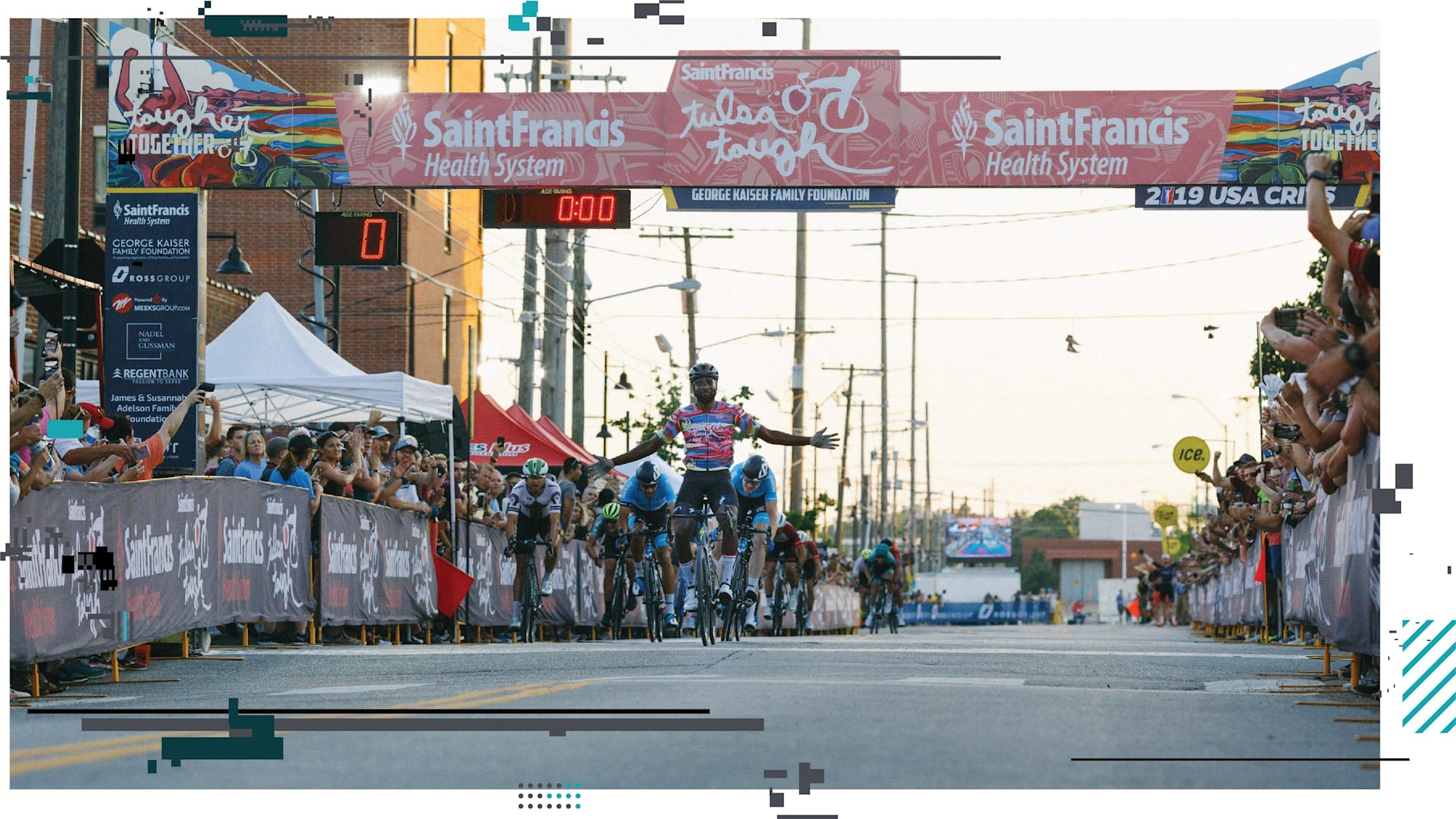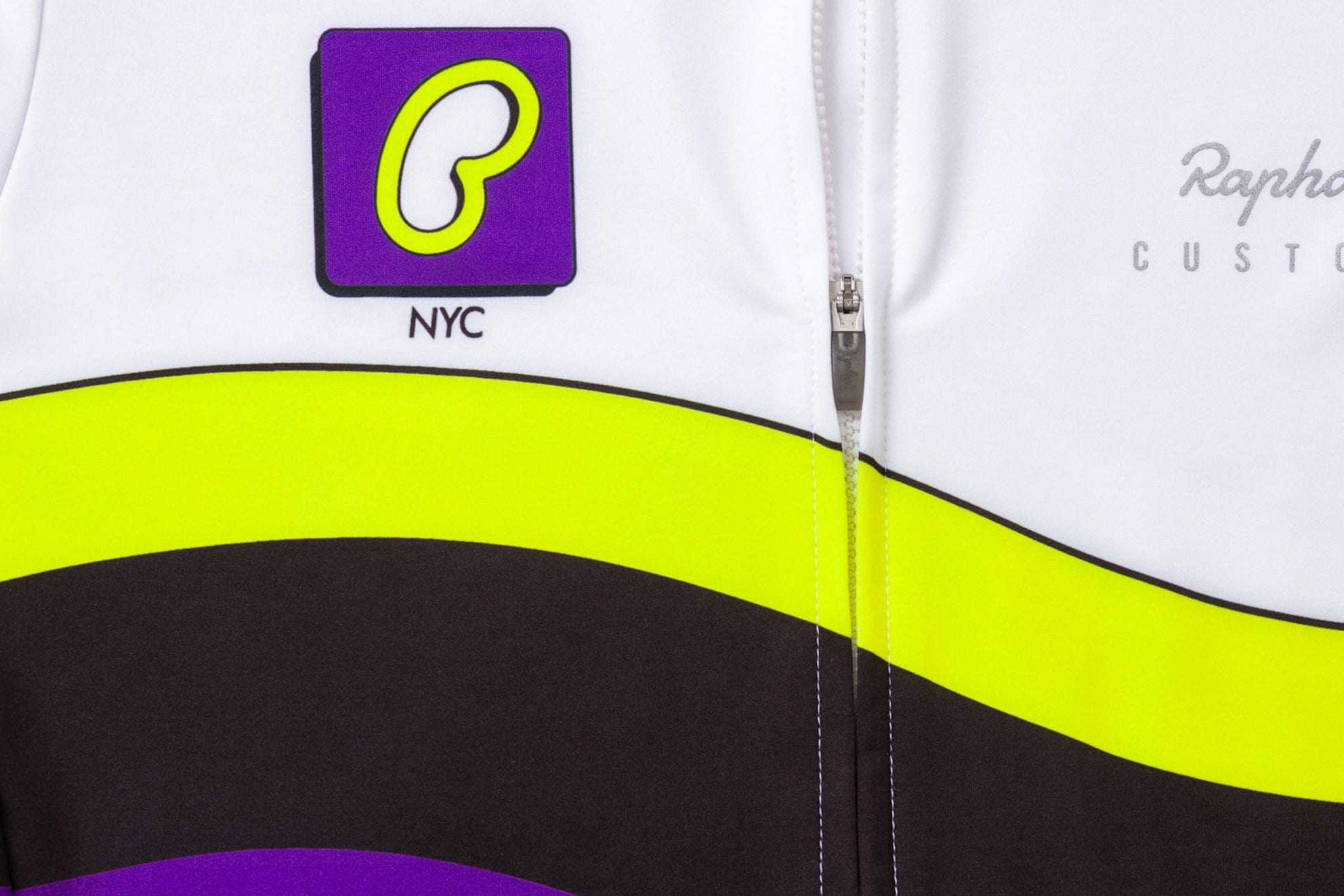
Rapha Custom Artist Collaborations
To celebrate the launch of Rapha Custom, we collaborated with artists from around the world, with designs inspired by each artist’s local riding.
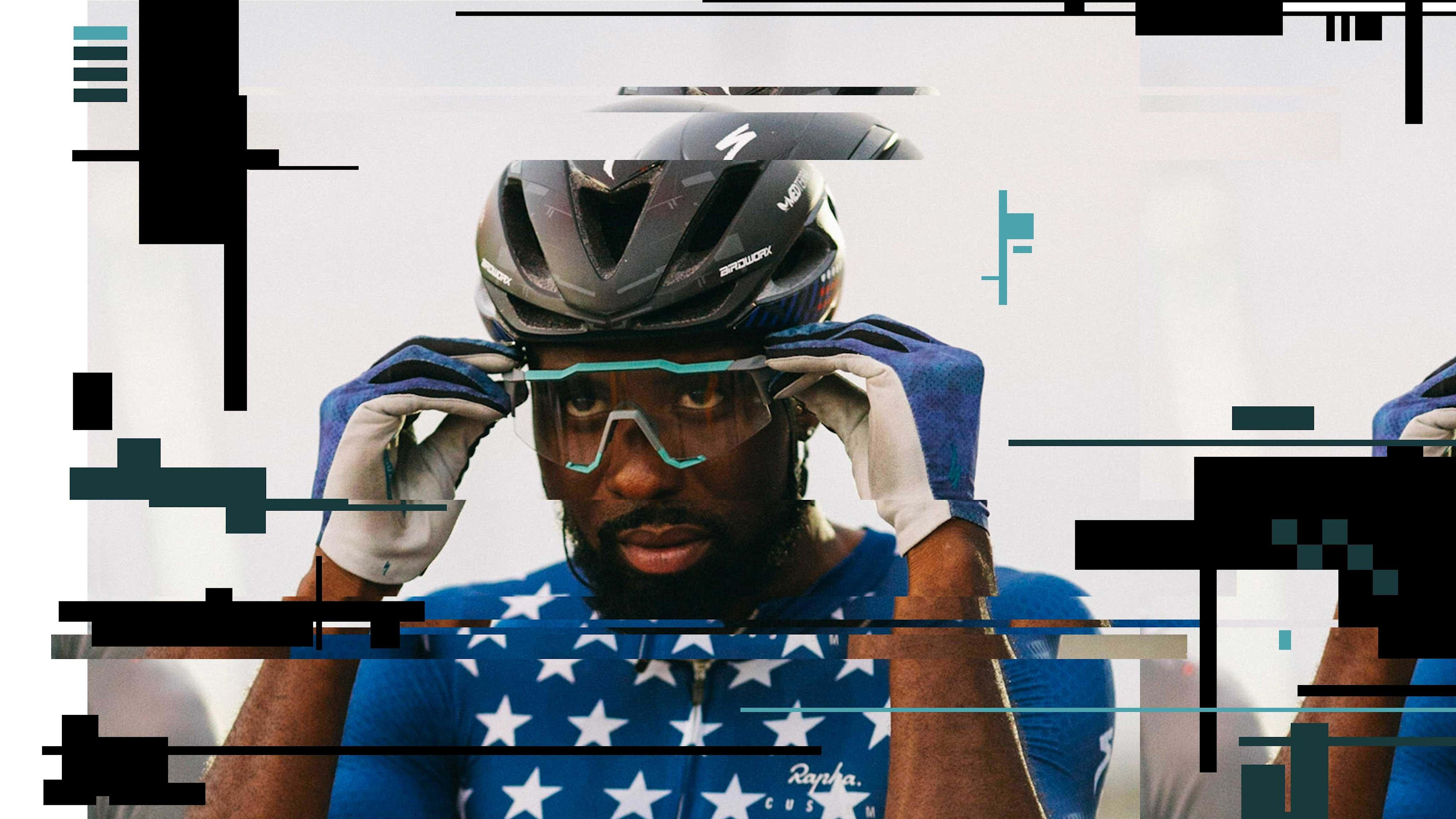
Justin Williams is the 2018-19 US national amateur road and criterium champion and one of the fastest sprinters in road cycling. He’s also from south central Los Angeles. A man with his path to the top blocked at every turn.
So he’s decided to do things his way.
Riding at the beat of his own heart.
And he’s changing the sport.
This is his corner.
This is his crit.
This is his cycling.
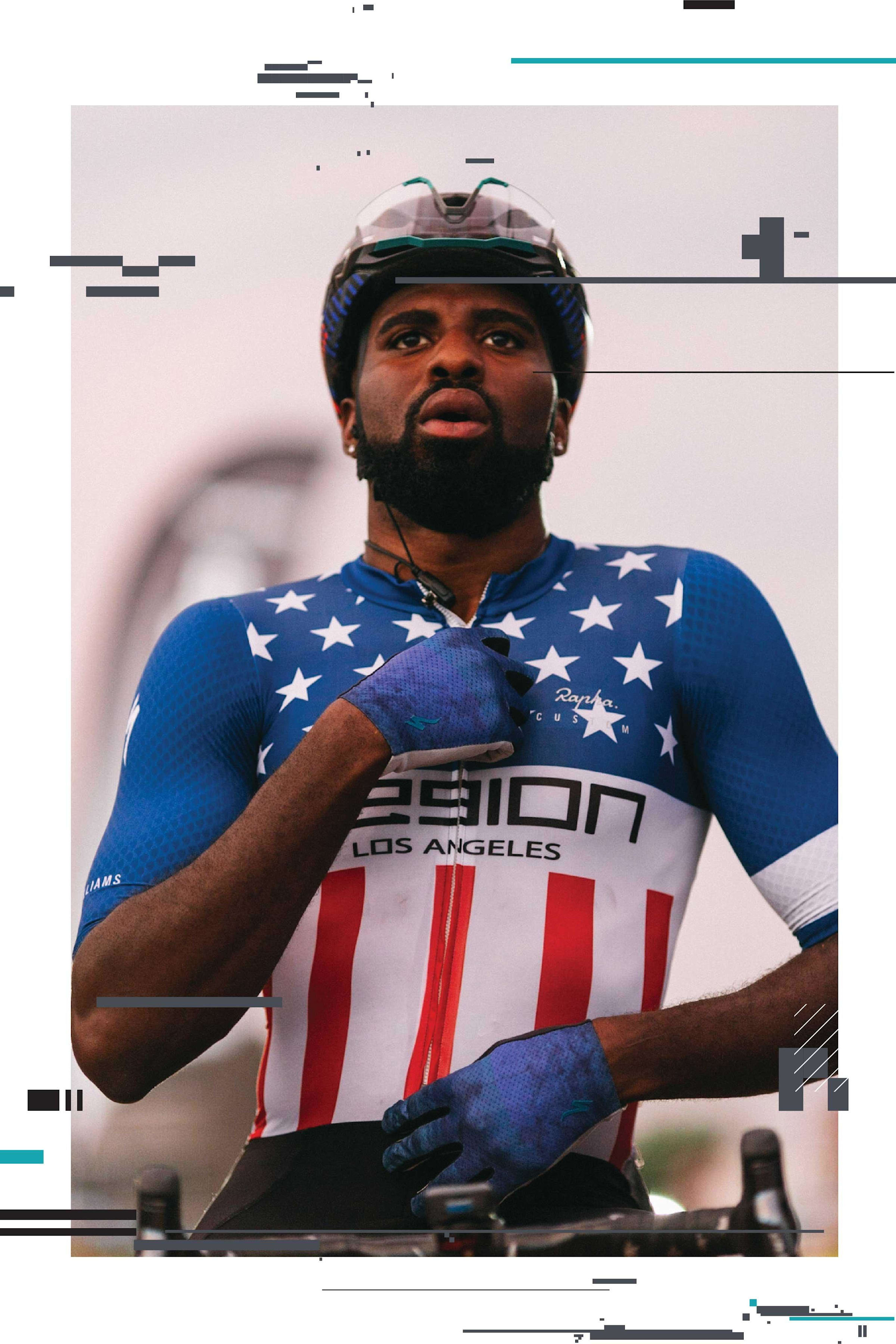
They say you grow stronger at the broken places - but it takes a particular mindset to bounce back. Justin Williams has been knocked down so many times that he’s damn near indestructible now. Repeatedly denied opportunities in a career that promised so much by a sport so anchored to tradition, the 30-year-old from south central Los Angeles decided to create his own independent cycling team, Legion of Los Angeles. With sponsors Rapha, Specialized and Shimano in the pocket, he’s his own boss now, and is redressing the inequality of the sport himself.
‘Legion’ are a team of talented racers of varying ethnicities and backgrounds who don’t necessarily fit the mould of official programmes and federation pathways. It is Justin’s dream to offer these young riders the platform from which to make their own way in the sport, and they’re knocking heads on the LA crit scene with their unstoppable leadout train and infectious energy.
Justin hasn’t finished with his own hopes and dreams on the bike just yet, however.

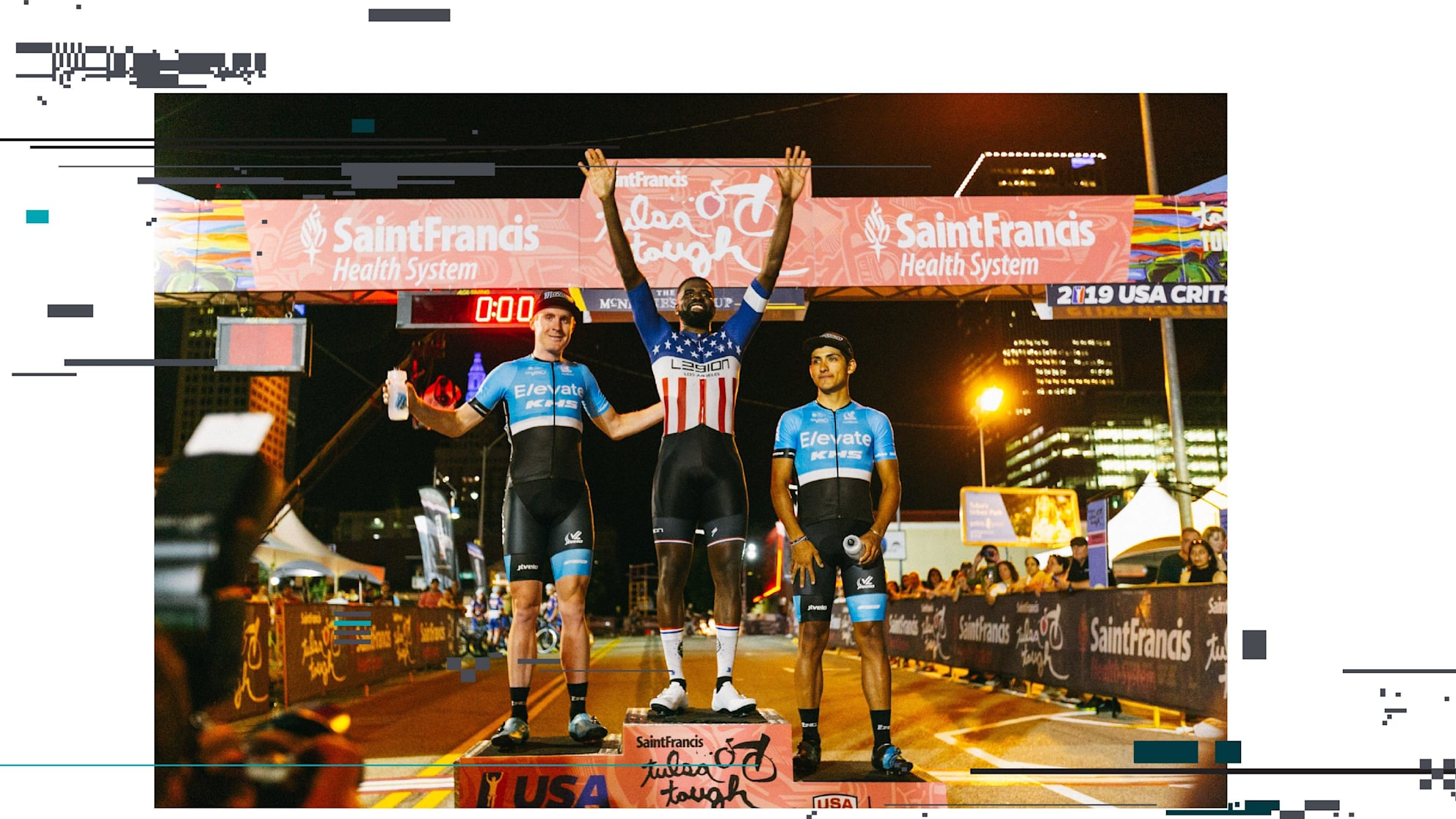
Tulsa Tough is a weekend festival of speed on two wheels. Mixing high octane circuit racing with a generous serving of ‘spring break’ party atmosphere, its exciting omnium format draws the quickest sprinters from the US pro and amateur scene to race together.
Justin had never won there before. This year, just three weeks ago, he won the first two races out of three, beating all-comers. On day one, after speeds that never dropped under 30mph all race, Justin was boxed in on the final corner but managed to muscle out towards the line ahead of the rest. He posted up a little early, and very nearly got pipped for the win.
Day two, and he made sure it wasn’t in doubt, with plenty of time to enjoy the celebration this time. By the time Sunday night rolled around – with Justin’s young team mate Sean McElroy taking 2nd place in the hillier final race – the Legion boys were bursting with pride and hit the after parties as hard as they had raced.

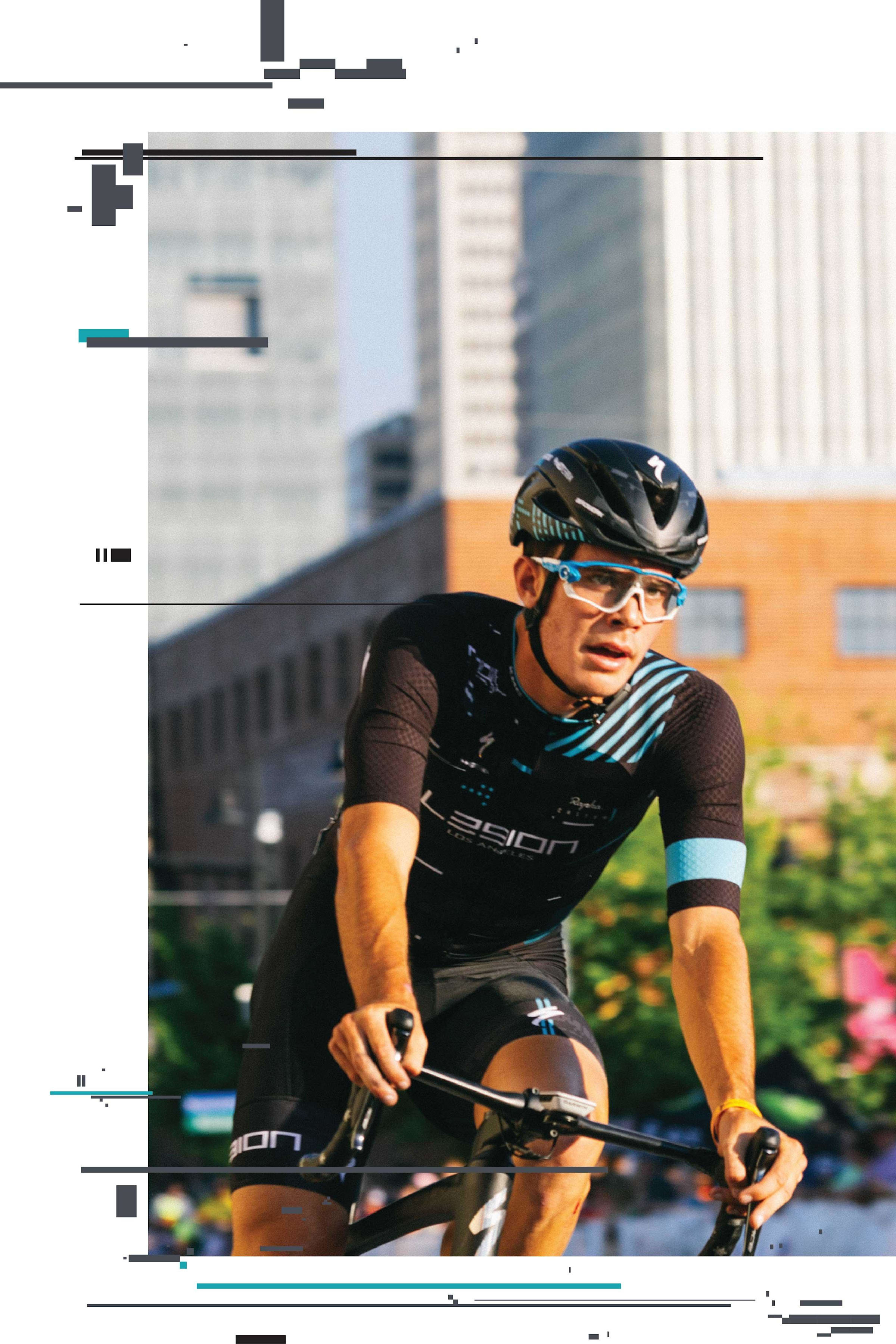
Determination marks the upbringing of Justin Williams. The youngest in a group of 20 cousins who would play football together every day, Justin was never excused for his size and grew up fast on the field of hard knocks. He had real talent too, but a promising career in gridiron was curtailed by injuries and a mother who “wasn’t about that life!”, so Justin resolved to find another path.
“I grew up in south central Los Angeles, where there isn’t a ton of opportunities,” he says. “I think the statistic is that one in every three black males will end up in prison at some point in their life so the odds were already stacked against me. I had a clear vision of that early, and I didn’t want to grow up and be like everyone else. Cycling was the perfect outlet for me to step outside of that bubble.”
Justin’s father was a strong bike racer, but he made no bones about cycling’s difficulty to his son, leaving him at the roadside 50 miles into his first ever road ride, aged just 13: “He made sure I realised right away that this is not an easy sport!” But Justin persevered, and most importantly, he had a role model to follow in family friend Rahsaan Bahati, one of the only black pro cyclists in the world. “That I had this figure from where I was, doing these huge things and travelling the world… It was powerful,” says Justin.
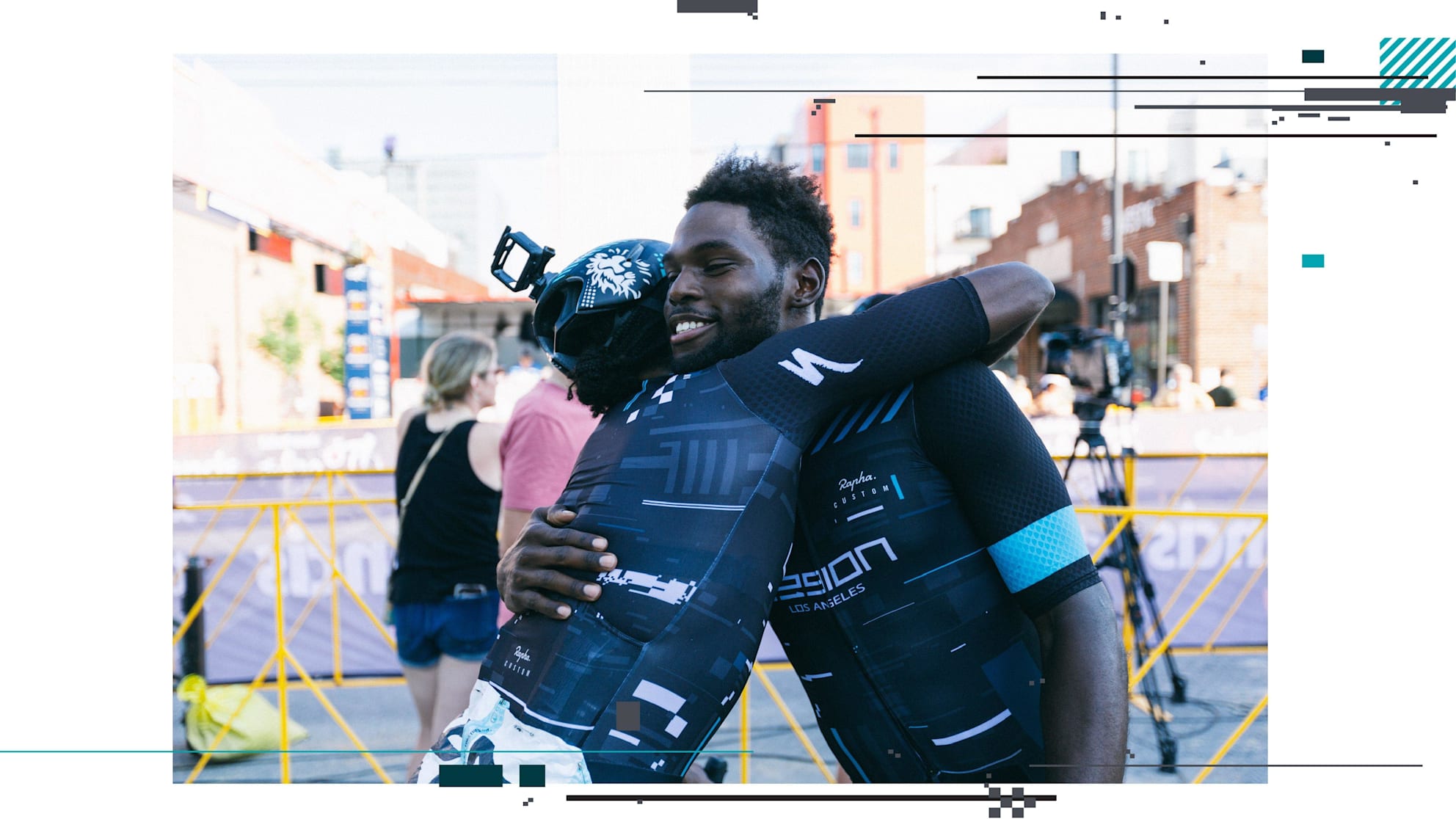
Almost immediately, Justin showed that he had the perfect combination of fluid bike handling, fearlessness and explosive legs to be a sprinter. He won hatfuls of races as a teenager. In his head, making the US national team programme was the only goal that mattered. He dreamed of stars and stripes and chequered flags.
After feeling ignored by USA Cycling despite his results, Justin finally forced the issue aged 17 when he won a track national title (the first of three), and he was on the squad. But, as he says, “they wanted me to focus on the track, and my heart has always been on the road, so there was this really crazy struggle inside me, from having this really cool opportunity in front of me, and my heart being in a different place. Ultimately I ended up staying on the road.”
This stubborn determination to achieve what he wanted, and not be cowed by what others expected or wanted from him, was to be a feature of his whole cycling career. A laudable stand in a sport so entrenched in the so-called right and wrong ways to do things, but it has certainly made his life hard at times, as Justin himself will admit.
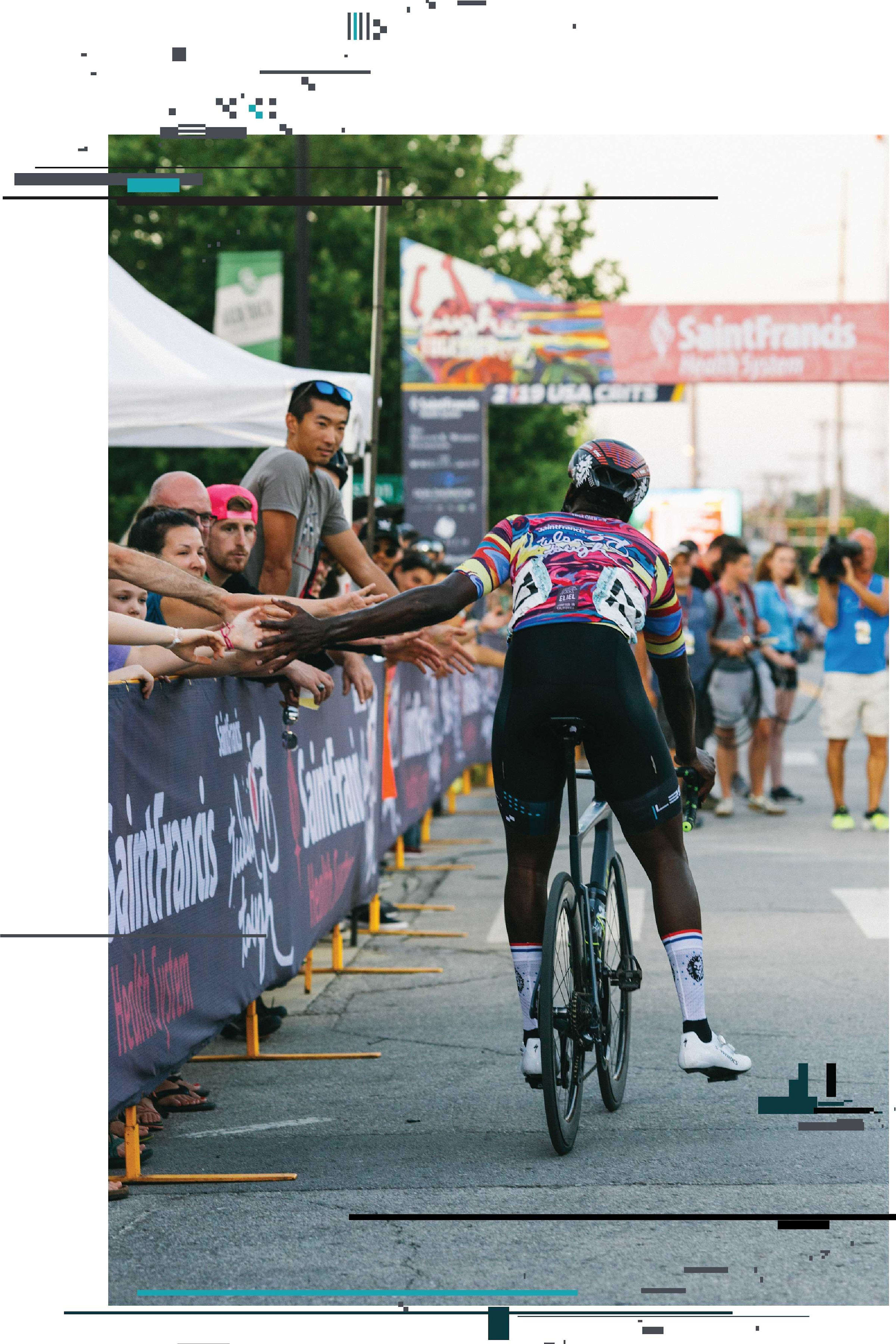
By now, Justin was racing with his mentor Bahati at Rock Racing, a chaotic US outfit that included the ageing Tyler Hamilton and Mario Cipollini on their roster. It wasn’t exactly the ideal first pro team for a teenager to join, and when Rock folded in acrimony the next year – “that was really tough for me, I didn’t really know how to handle it” – Justin kept his road racing dreams alive with a spot on Axel Merckx’s Trek-Livestrong talent development squad in 2010.
On the same team as future WorldTour stars Taylor Phinney, Ben King, Alex Dowsett, and Nate Brown, and also competing for the US national team in Belgium, Justin earned impressive results at kermesses, the high speed Belgian pro/am races that are known to make men of boys, or break them.
“After one race, the national coach said to me: ‘you can be really good at this’. I thought I was golden! I did U23 Roubaix, and worked for Taylor [Phinney] when he won. It was sick! I flew home and finally got to see my girlfriend, and I remember the national team going ‘hey man we’re going to fly you back out to Europe in a week’. I’d been home for only a week, I didn’t know this was happening. I said ‘ah I’ve got to think about it, I have all this other stuff going on’. I didn’t end up going back to Europe and I never got the call again. I kind of just fell off the map.”
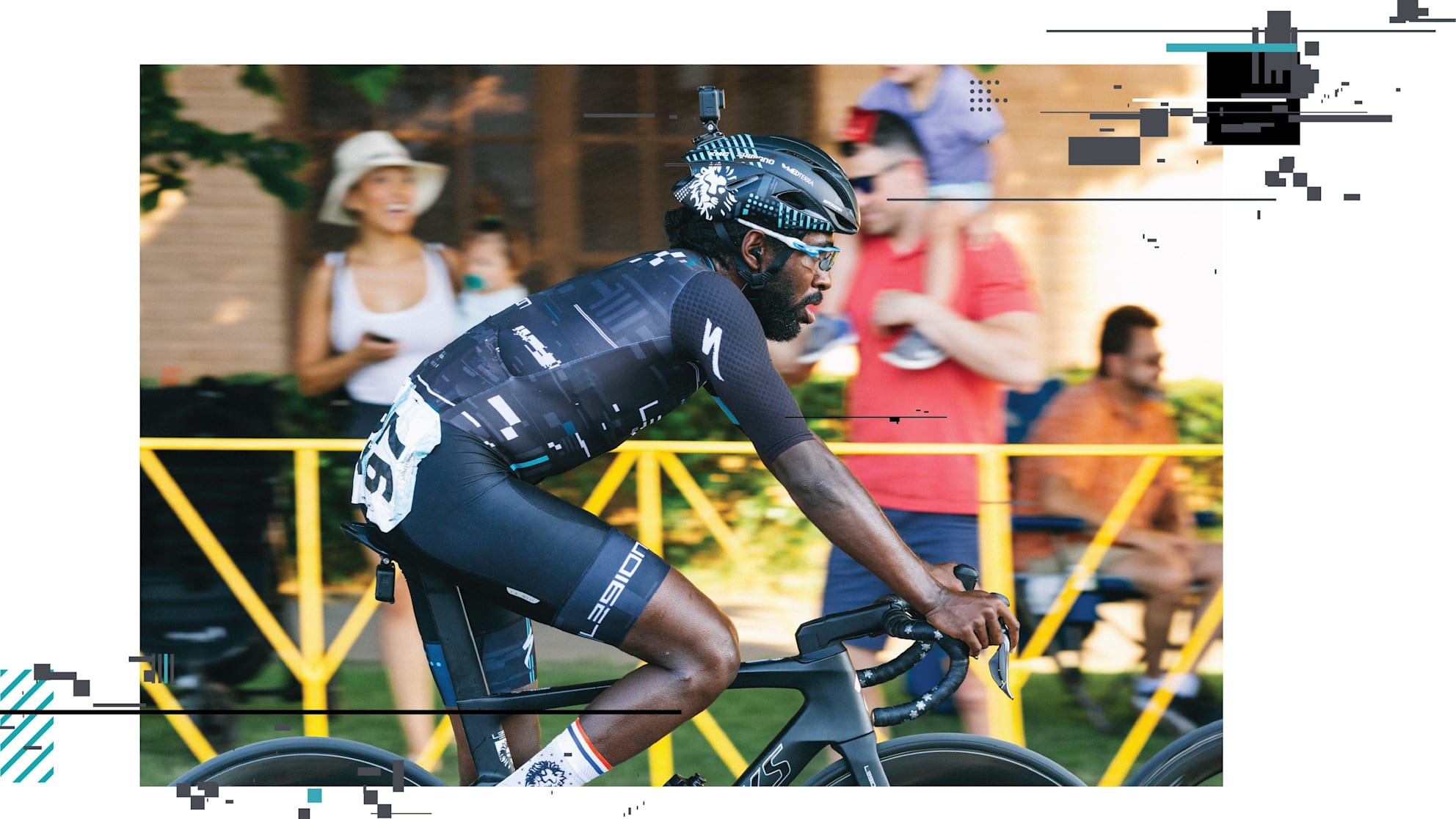
And so began the Justin Williams wilderness years:
“There was a period of being lost. I guess I had a reputation of being hard to deal with. I didn’t know where that came from. I had an arrogance about me, sure, but I was learning to be a sprinter, I was fighting for respect from these racers, I was a young kid. There’s also this misconception of what black men are like, so people started looking at me as the ‘angry black man’. I was 20, 21 years old and I just needed a little guidance.”
Feeling like nobody wanted him and his pro dream had disappeared, Justin checked into college, got an apartment, got a job. He kept racing, but flitted from lower level team to lower level team, squabbling in the smalltime politics of domestic racing and falling out with fellow riders and management. Everything changed, however, when his younger brother Cory – himself a talented sprinter – turned pro with US pro team Cylance in 2016, convincing his new bosses to sign up big bro too.
“I didn’t want to do it anymore,” says Justin. “But the only reason I spent another year on the bike was because it was Cory’s first year as a pro. I told him I’d be his training buddy to help him. I was the last person to sign for the team that year, and then I won 16 races.”

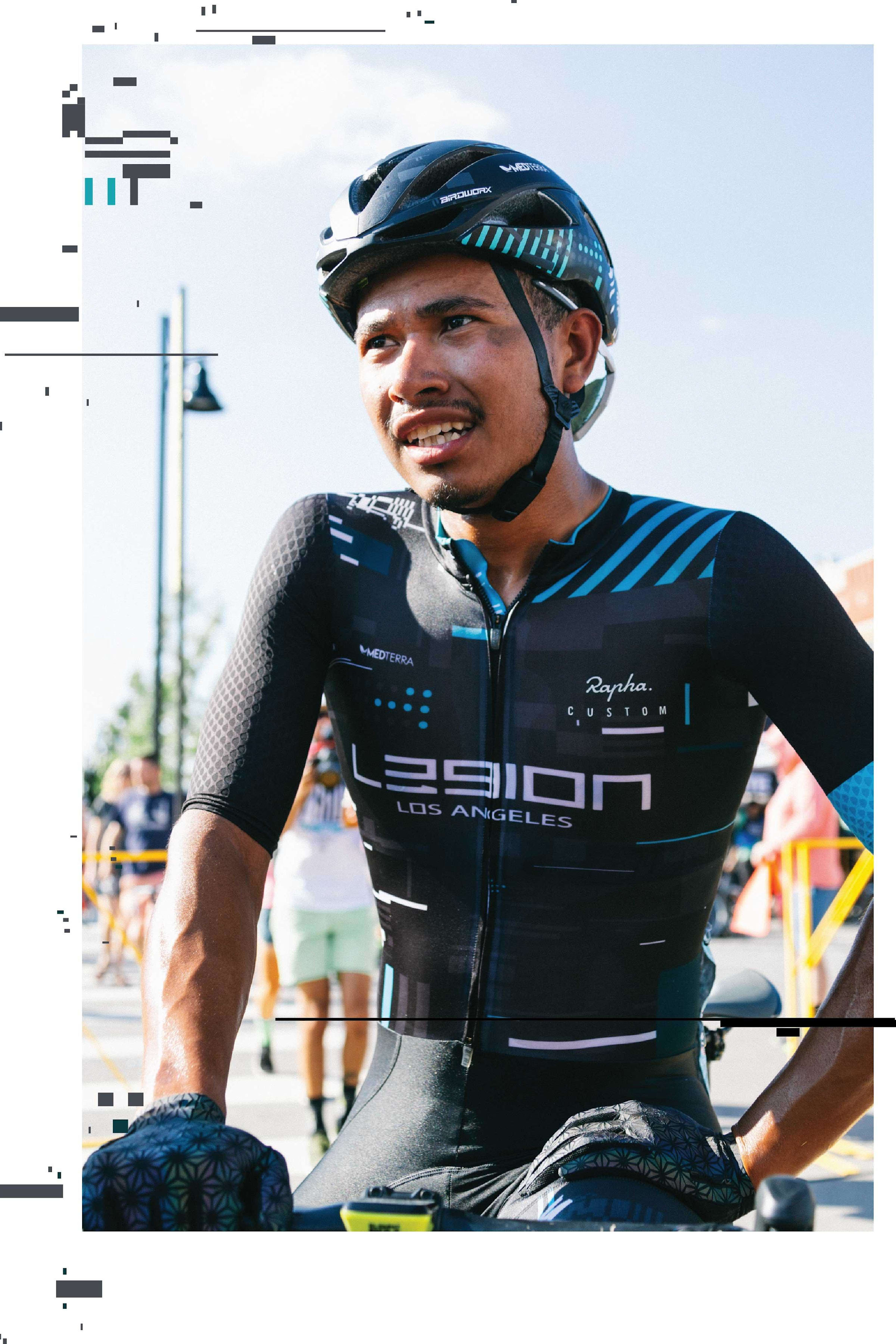
Revitalised and reinstated as the king of US crit racing, Justin’s career had roared back into action. But when Cylance failed to re-sign Cory for 2017, despite having promised Justin that they would, it was an act of treachery that left the sprinter rueing the dastardly machinations of the sport. He was locked into a contract for another year.
“So I had to race for Cylance, and business is business so I showed up. I had contemplated f*cking the year off, but I don’t win for them, I win for me. I win for my family. Cory told me go and smash everything, and I had another phenomenal year, winning 14 races. But that was it for me. I was done with the people in the sport. The same bullsh*t that people try to pull. It was taking the fun and the love out of it and was such a degrading environment to be in. I don’t know what happens at the WorldTour level but in American racing for the longest time the cyclists get the short end of the stick.”
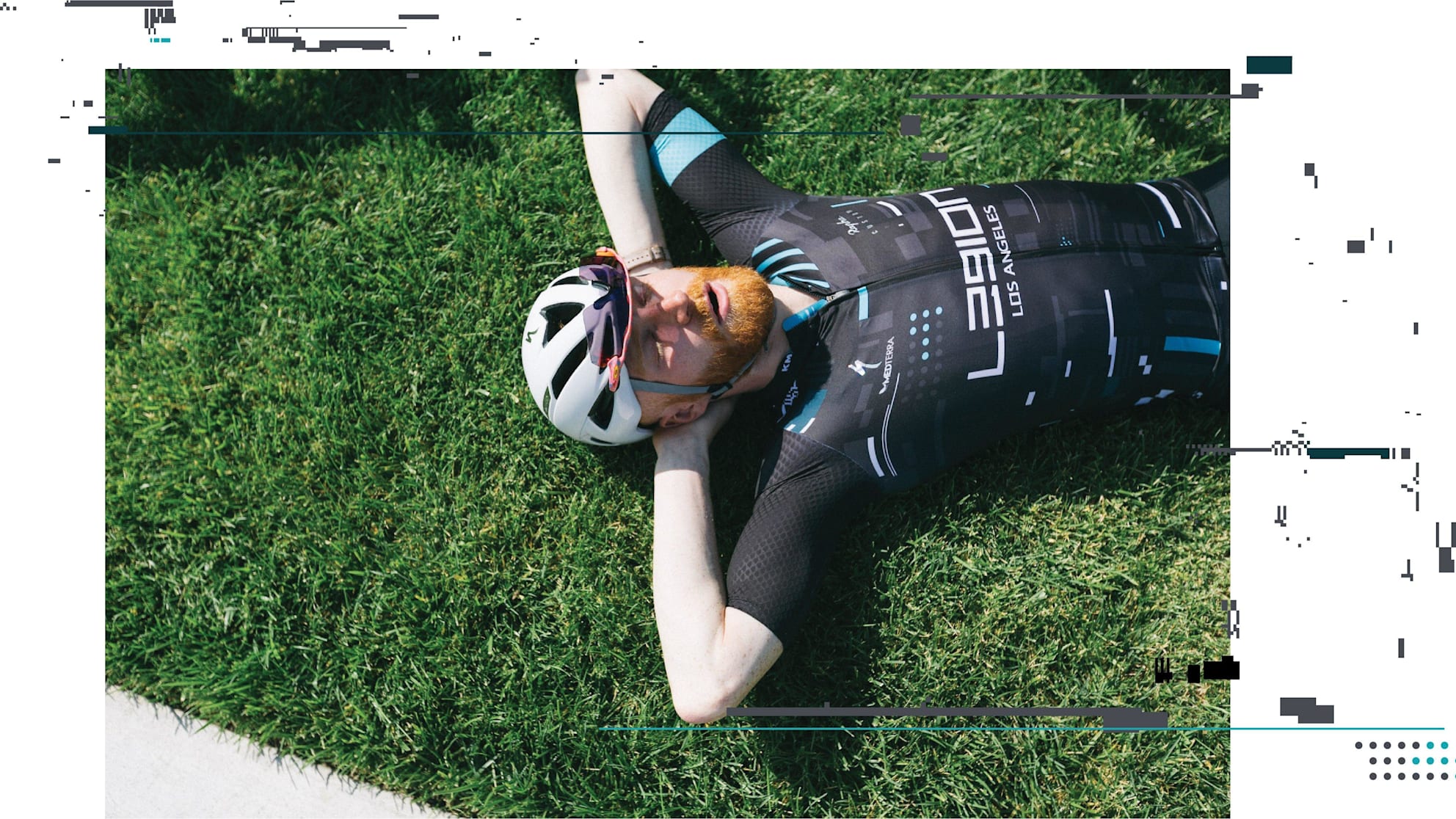
2018 came around and Justin took matters into his own hands. He signed a contract with Specialized to race on their Specialized-Rocket Espresso fixie super team at Red Hook Crits. It was a revelation. “We were like brothers right away. I’ve never gone to a team and felt that love so quickly. That was something that was missing from the level I had been on, where everyone was like crabs in a barrel: ‘oh you’re good but you’re not that good’. In reality it doesn’t matter. If you’re on the team then you deserve to be here. You’re supposed to help me, and me help you. We should love each other and have this mutual respect.”
The Specialized deal allowed Justin to race as an independent on the road, and he managed to win the road and crit amateur nationals with no team mates. His profile was exploding, thanks in part to the social media-savvy fanbase of Red Hook Crit, and Justin had a brainwave: why not use his position to make his own team? One that would offer young riders the environment that he had always craved. A team that rode together, and loved each other: this would become Legion of Los Angeles.
“I wanted to share with other guys, with younger guys, what I had experienced on Specialized-Rocket Espresso. My brother was going through the same thing that I had been going through. So I said ‘I can’t stand for this’. A lot of people want to complain about the state that the sport is in but nobody wants to do sh*t. Nobody wants to take a stand and be the problem. I don’t care about being the problem. Specialized were in for 2019, and getting the partnership with Rapha was huge. And then Shimano came onboard. So before I knew it I had three of the biggest brands in cycling backing this programme that had never existed before. We were off to the races.”
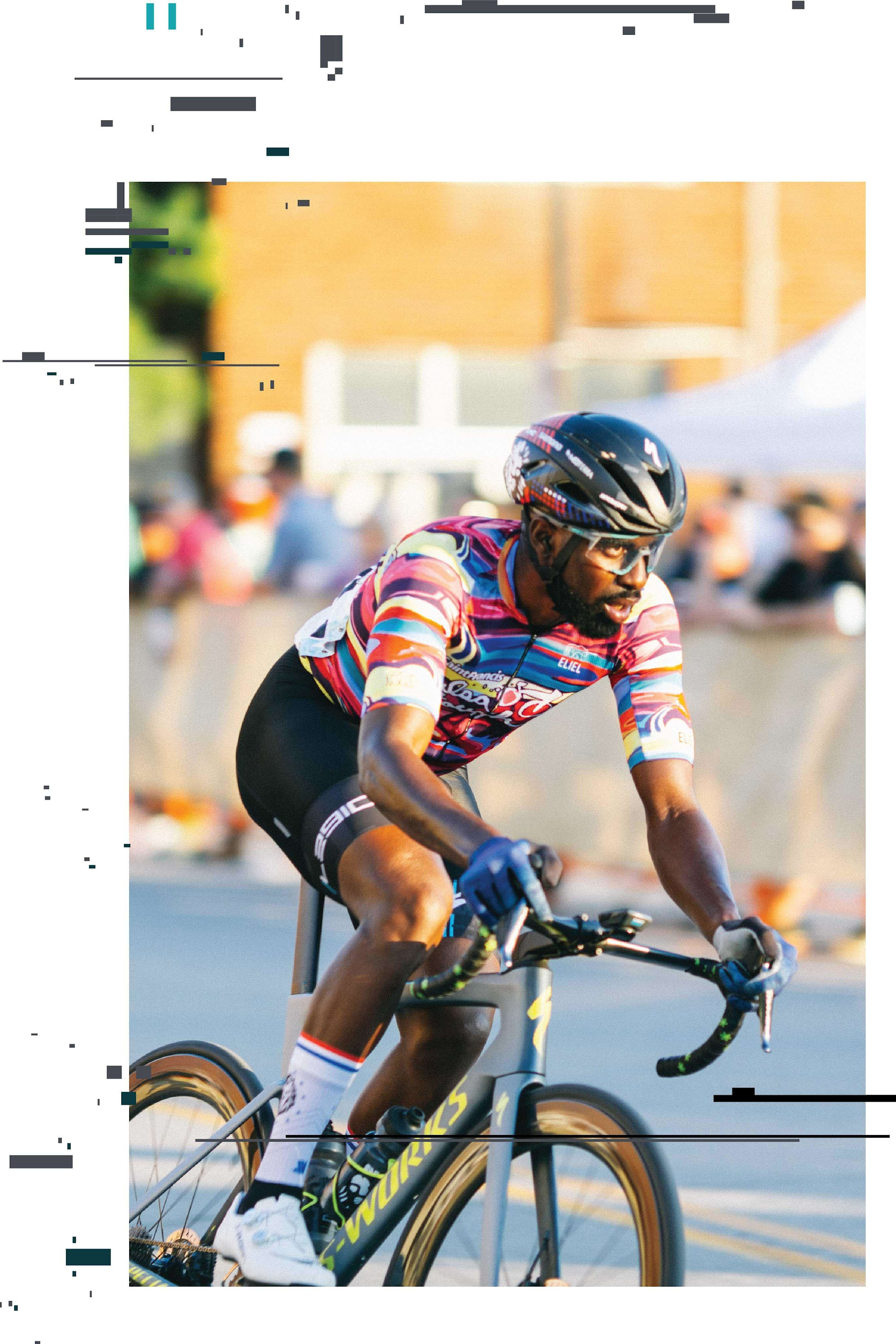
Legion of Los Angeles are the greatest thing to happen to north American racing in the last decade. They began the year competing in the grey kit of the Rapha Cycling Club, before switching out to their new Rapha Custom design last month. But whatever the colours they’re wearing, you know it when they’re coming. A riot of big, friendly energy and hip hop, Legion are infectious. Thousands of cyclists around the country and beyond are joining the ‘Pride’, inspired by the positivity of Williams’ message. There is a fighting talk brashness to the team that is unusual in racing, and it’s strangely endearing. Helmet cam GoPro videos uploaded by Cory after each race attract hundreds of thousands of views. Meet and greets with fans can take hours. It might be relatively small-time racing – for now – but it’s big-time humanity.
Justin is both team manager and star sprinter, which is a lot. Planning and arranging means missed training days, but he says that the sacrifices to his own cycling career are more than paid back by the thought of building something that he hopes exists when he’s gone: “Man, I’m super happy. Legion is growing faster than I know what to do with it. I feel like everybody in the team knows that they have purpose, and that we appreciate them. I want them to be happy and have this very unique experience in cycling so that even if they don’t become top level cyclists, they have this really great nostalgia about the sport when they’re done. To see the growth of the human within the programme, those are as big as wins to me. I still love winning, but there’s just more to life for me now.”
This is his cycling.
